Paris nightlife where beats shine isn’t just about drinking-it’s about finding the rhythm that matches your soul.
You don’t need to be a party animal to feel it. The first time you walk into a basement club under a bridge in the 10th arrondissement, the bass hits your chest before you even see the lights. That’s Paris after midnight. Not the postcard version with cafés and croissants. This is the city that wakes up when the sun goes down, where music doesn’t just play-it pulses through the walls, the pavement, the air you breathe.
Forget what you saw in movies. Paris nightlife in 2025 isn’t about fancy dress codes or VIP lists that cost more than your rent. It’s about hidden doors, unexpected sounds, and places where the DJ doesn’t care if you’ve heard of them. The crowd? Mixed. Young students, old jazz lovers, expats who’ve been here since the 90s, tourists who got lost and never left. Everyone’s here for the same reason: the next track.
Where the bass lives: The clubs that still matter
Le Batofar still sits on the Seine’s left bank, a converted barge with no roof, no rules, and a sound system that makes your ribs vibrate. It’s been open since 1993, and it’s still the place where underground techno meets French house. No bottle service. No velvet ropes. Just a long wooden bar, a crowd that moves like one body, and a DJ who plays 12-hour sets because they can.
Then there’s Concrete, tucked under a railway arch in the 13th. Opened in 2019, it’s already legendary. The walls are concrete, the floor is concrete, the lights are dim. But the sound? Crystal clear. They don’t book big-name DJs. They book people who’ve been spinning in basements for ten years. The crowd knows. You’ll see the same faces every Friday night-people who’ve come back because they’ve heard something here they can’t find anywhere else.
And if you’re into jazz? New Morning is the quiet heartbeat of Paris after dark. No flashing lights, no strobes. Just a stage, a saxophone, and a room full of people who sit still because they’re listening. It’s not loud, but it’s deep. The kind of place where a 70-year-old man in a tweed coat will nod along like he’s hearing the music for the first time.
Hidden spots you won’t find on Google Maps
Paris has over 120 licensed clubs, but the real magic happens in places that don’t advertise. Look for a door with no sign. A stairwell that leads down into a basement. A courtyard where someone’s playing vinyl through a single speaker. These aren’t secrets-they’re traditions.
In the 11th, there’s a warehouse that turns into a club every Saturday. You need a password. You get it by texting a number on a flyer taped to a metro pillar. Inside, it’s 30 people, a DJ on a laptop, and a wall covered in hand-drawn murals. No one knows who runs it. No one cares. The music is raw, unpolished, and perfect.
Another one? A bookstore in Montmartre that opens a back room at 1 a.m. on Sundays. You buy a coffee, sit on a beanbag, and listen to ambient electronic music while rain taps on the skylight. It’s not a club. It’s a sanctuary. And it’s been running since 2017.
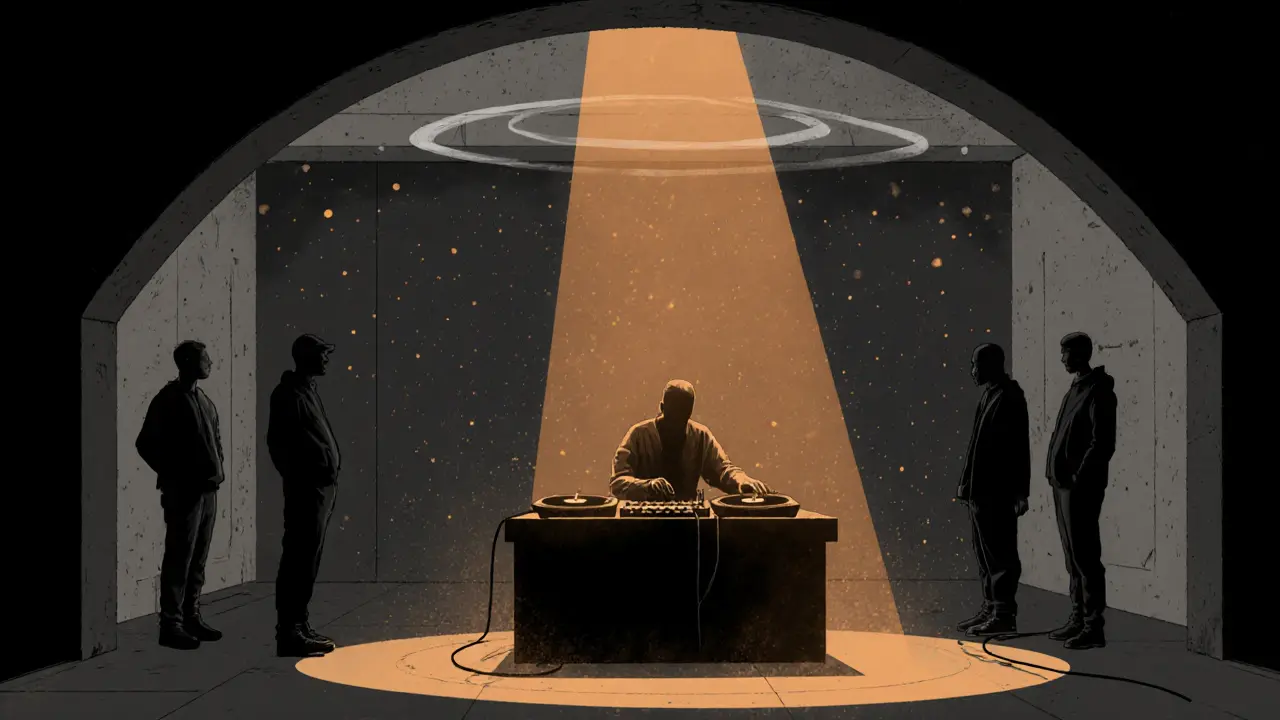
What’s changed since 2020-and what hasn’t
Paris nightlife took a hit during the pandemic. Clubs closed. People left. The city felt quieter. But by 2023, something shifted. A new generation of promoters, DJs, and venue owners started rebuilding-not to compete with London or Berlin, but to make something uniquely Parisian.
They stopped chasing trends. No more EDM festivals in the Tuileries. No more bottle-service lounges pretending to be exclusive. Instead, they focused on space, sound, and community. The city passed new laws in 2024 that let clubs stay open until 6 a.m. if they meet noise and safety standards. That’s huge. It means you can dance until the sun rises over the Eiffel Tower and still catch the 7:15 metro home.
And the music? It’s changed too. French house is still there, but now it’s mixed with North African beats, Congolese rumba, and Brazilian baile funk. You’ll hear a track from Dakar followed by a 1998 Detroit techno classic. No genre is off-limits. That’s the rule now: if it moves you, it belongs here.
How to actually get in (without paying extra)
Most clubs in Paris don’t charge cover before midnight. After that? It depends. Some stay free. Others ask for 5 to 10 euros. That’s it. No “VIP tables” with 300-euro minimums. No fake IDs needed if you look over 18. You don’t need to know the bouncer. You just need to show up.
Here’s the trick: go early. Not at 11 p.m. Go at 10. The line is short. The vibe is better. You get a good spot near the speakers. And you get to watch the room fill up slowly, like a tide rising.
Don’t wear sneakers with suits. Don’t wear flip-flops to a techno club. Wear what feels like you. Parisians notice effort, not labels. A clean pair of jeans, a good shirt, and confidence matter more than a designer jacket.
What to drink (and what to skip)
Wine? Sure. But not at 2 a.m. in a club. The real drink here is beer-local craft brews from Alsace or Normandy. Or a simple gin and tonic. Or a glass of absinthe if you’re feeling brave. Most clubs don’t serve cocktails. They don’t need to. The music is the main course.
Don’t fall for the tourist traps. Places near the Champs-Élysées that charge 18 euros for a soda? Skip them. The real nightlife is a 15-minute metro ride away. And the drinks? Half the price. Better taste. Better company.

When to go-and when to stay home
Thursday nights are quiet. Friday is the big night. Saturday? You’ll find crowds, but also the best DJs. Sunday is for the late-night dreamers. Monday? Only if you’re looking for something experimental. Some clubs open just for Monday nights-jazz, spoken word, experimental soundscapes. It’s the kind of thing you’ll remember forever.
Stay home if you’re looking for glitter, glitter, and more glitter. Paris nightlife doesn’t do sparkle. It does soul. It does sweat. It does silence between beats. It does the moment when the whole room holds its breath before the drop.
Where the music goes after the clubs close
When the last track ends, the night doesn’t die. It moves. People walk. They talk. They find a 24-hour crêpe stand near République. Or they hop on a night bus and end up at a rooftop bar in Belleville with a view of the whole city. Someone’s always playing music. Sometimes it’s from a phone. Sometimes it’s from a boombox. Sometimes it’s just someone humming a tune under their breath.
That’s the real Paris nightlife. Not the clubs. Not the lists. It’s the feeling you get when you’re walking home at 5 a.m., your ears still ringing, your feet sore, and you realize-you didn’t just go out. You lived.
What’s the best time to start a night out in Paris?
Start between 9:30 and 10 p.m. Most clubs don’t fill up until midnight, but getting there early means you avoid long lines, get a good spot near the speakers, and experience the night unfold naturally. Many venues don’t even charge cover until after midnight.
Do I need to dress up for Paris clubs?
No. Parisians value effort over labels. Clean jeans, a good shirt, and comfortable shoes work for most places. Avoid flip-flops in techno clubs or overly flashy outfits in jazz spots. The goal is to look like you belong-not like you’re trying too hard.
Are Paris clubs expensive?
Most clubs charge between 0 and 10 euros at the door, if anything. Drinks cost 5 to 8 euros-beer, wine, or a simple cocktail. No hidden fees. No bottle service. The focus is on music, not money. The only expensive clubs are the tourist traps near major landmarks-avoid those.
Can I go to Paris nightlife alone?
Absolutely. Paris nightlife is one of the most welcoming for solo visitors. People come alone to dance, to listen, to disappear into the music. You’ll find others doing the same. It’s not about who you’re with-it’s about what you feel.
Is Paris nightlife safe at night?
Yes, especially in the main nightlife districts like Oberkampf, Belleville, and the 10th and 11th arrondissements. The city has strong night safety measures, including increased metro service until 2 a.m. and well-lit streets. Avoid isolated alleys after 3 a.m., but the clubs and bars themselves are generally very safe.
Next steps: Where to go tonight
Start with Le Batofar if you want raw energy. Go to Concrete if you crave deep, minimal beats. Try New Morning if you’re in the mood for something quiet but powerful. Wander into a hidden door in the 11th if you’re feeling adventurous. And when you find your spot? Don’t leave until the last track fades. That’s when the real night begins.

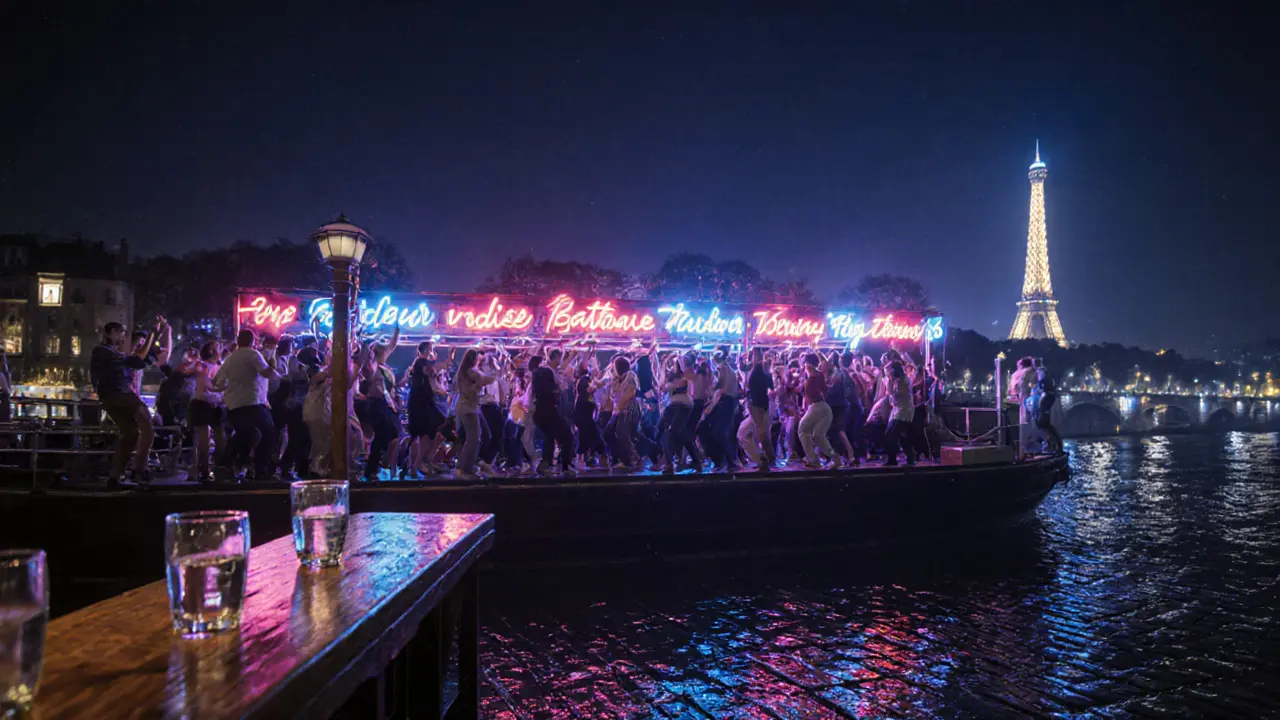
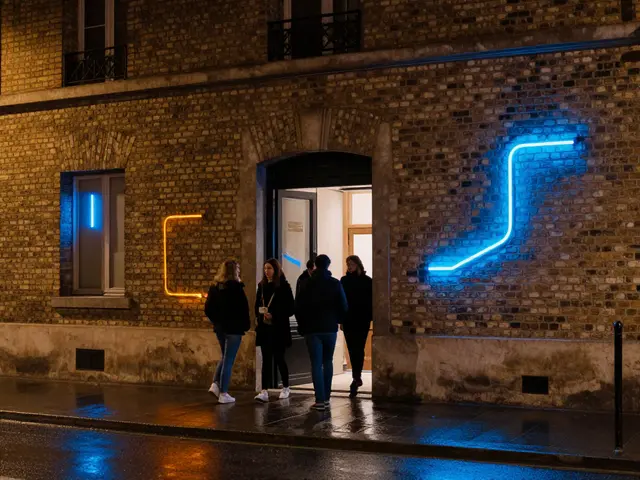

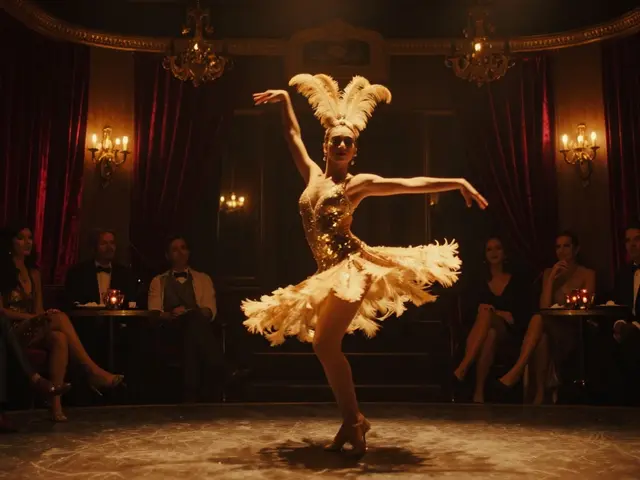
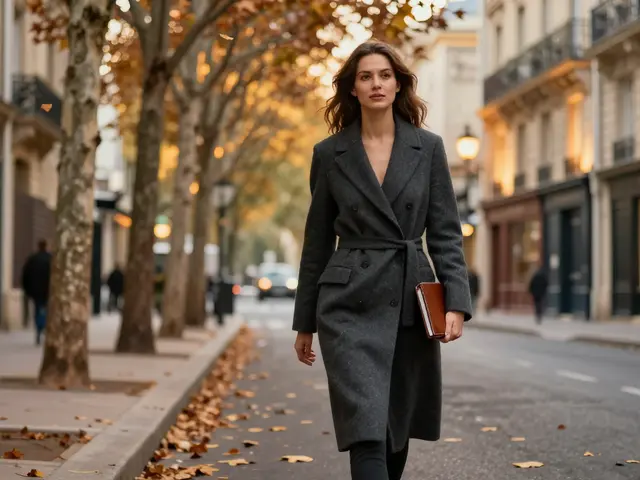
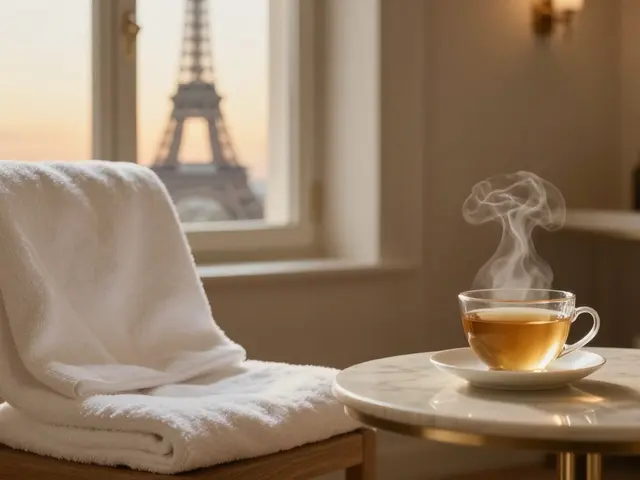
Le Batofar changed my life. I went there solo in 2022 after a breakup and just let the bass take over. No talking, no phone, just movement. That place doesn’t care who you are-just whether you’re present. The DJ that night played a 45-minute loop of a Senegalese griot sample fused with Detroit techno. I cried. Not because I was sad-because I felt seen.
Paris nightlife isn’t about drinking. It’s about sonic belonging. If you’re looking for a scene, go to Berlin. If you’re looking for a soul reset, show up at 10 p.m. with no expectations and let the city breathe through you.
Concrete is not 'legendary'-it's just one of several properly engineered underground spaces in Paris that prioritize acoustics over aesthetics. The fact that you mention 'no big-name DJs' as if that's some revolutionary act is naive. London's Corsica Studios has been doing this since 2010. Berlin's Berghain has been doing it since 2004. Paris is late to the party, and you're acting like it invented minimal techno. Also, 'concrete floor' doesn't make it special-it makes it cold. And damp. And poorly ventilated. You're romanticizing neglect.
Okay but you wrote 'no roof' for Le Batofar-that’s not even grammatically correct. It’s 'no roof' as in 'it has no roof'-but you didn’t capitalize 'roof' after a period? And 'it’s been open since 1993'-wait, that’s a contraction, but you didn’t use an apostrophe? And 'the crowd that moves like one body'-that’s a cliché. You’re not writing a novel, you’re writing a travel blog with pretensions.
Also, 'no bottle service'-who even says that anymore? It’s 2025. We’re past the 2010s club tropes. And why do you keep saying 'it’s not about money' like that’s some profound revelation? I’ve been to clubs in Mexico City and Lagos where the entry is free and the sound is better. Paris isn’t special-it’s just cheaper.
And 'no fake IDs needed if you look over 18'? That’s irresponsible. You’re encouraging underage people to lie about their age. This isn’t a guide-it’s a liability.
Man I love how you said 'wear what feels like you'-that’s the whole damn thing right there. I went to New Morning last month with my dad and he sat there for two hours with his eyes closed. Didn’t move. Didn’t talk. Just listened. When it ended he said 'I didn’t know music could feel like this.'
Don’t overthink it. Just go. No VIP. No dress code. No stress. The music finds you. And if you’re lucky, you’ll hear something that makes you forget your name for a little while.
The shift in Parisian nightlife policy post-2023 is genuinely noteworthy. The 2024 ordinance permitting operations until 6 a.m. under regulated noise thresholds represents a rare alignment between cultural preservation and urban policy. This is not merely a relaxation of licensing-it is an institutional recognition of nocturnal social infrastructure as a public good.
Moreover, the integration of global diasporic musical traditions-Congolese rumba, North African rhythms, baile funk-reflects a maturation of cultural syncretism that transcends tourism-driven homogenization. The absence of curated 'exoticism' in these spaces is particularly significant; the fusion is organic, not performative.
It is worth noting that the decline of bottle-service venues correlates directly with the rise of community-led promotion collectives. These are not businesses-they are collectives. The economic model is non-extractive. That is radical.
And you say 'no one cares who runs it' about the warehouse in the 11th? That’s dangerous. You’re glorifying unregulated spaces. What if there’s no fire exit? What if the wiring is old? What if someone gets hurt? You’re writing this like it’s poetry-but people die in these places. And you’re not even mentioning safety protocols. You’re romanticizing neglect. That’s irresponsible. And you say 'no fake IDs needed'-that’s illegal. You’re encouraging underage drinking. That’s not cool. That’s criminal. And why are you not listing the exact address of these places? Are you afraid someone will find them? That’s the whole problem-you’re hiding the truth. This isn’t a guide-it’s a cover-up.
Colin, you’re right that Paris isn’t the first to do underground sound-but that doesn’t mean it’s not doing it right. The difference is in the intention. It’s not about being first. It’s about being alive. The fact that a 70-year-old man in a tweed coat is nodding to a Congolese beat next to a 19-year-old student with earbuds still in from the metro-that’s the magic.
Jodie, you said you cried at Le Batofar. I did too. Not because of the music alone. Because for the first time in years, I didn’t feel like I had to explain myself. No one asked where I was from. No one asked what I did. No one cared. Just the bass. Just the rhythm. Just the silence between beats.
Patsy, I get your frustration with grammar. But sometimes the rules don’t capture the feeling. And William? You’re right. It’s not about looking like you belong. It’s about feeling like you do. And Peter? You nailed it. This isn’t tourism. It’s cultural evolution.
And Theophilus? You’re scared of what you don’t control. That’s okay. But don’t mistake safety for control. The real danger isn’t the unlicensed warehouse-it’s the silence when no one dares to dance anymore.